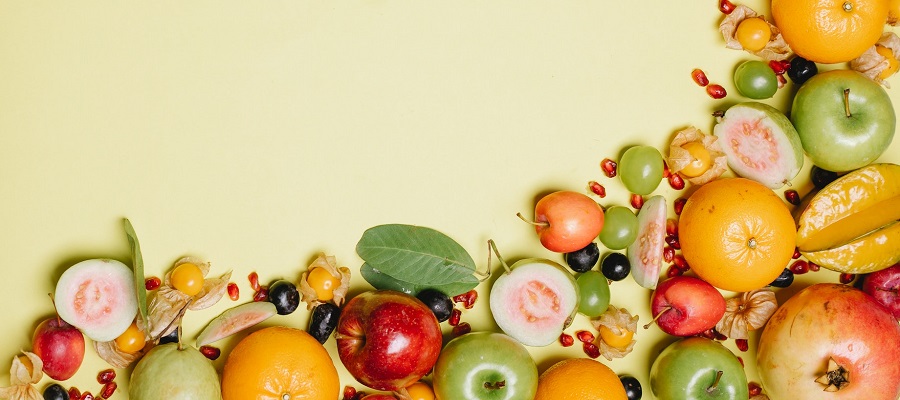What is a Vegetarian Diet?
A vegetarian diet is a dietary pattern that excludes meat, poultry, fish, and other animal-derived products. Instead, it focuses on plant-based foods such as fruits, vegetables, grains, legumes, nuts, and seeds. Vegetarianism has been practiced for centuries, and it is becoming increasingly popular due to its health and environmental benefits.
Types of Vegetarian Diets
There are several types of vegetarian diets, each with its own set of guidelines and restrictions. Here are the most common types:
1. Lacto-ovo vegetarian
This is the most common type of vegetarian diet. It excludes meat, poultry, fish, and seafood but includes dairy products and eggs. Lacto-ovo vegetarians get their protein from sources such as milk, cheese, yogurt, eggs, beans, and nuts.
2. Lacto-vegetarian
This type of vegetarian diet excludes meat, poultry, fish, seafood, and eggs but includes dairy products. Lacto-vegetarians get their protein from sources such as milk, cheese, yogurt, beans, and nuts.
3. Ovo-vegetarian
This type of vegetarian diet excludes meat, poultry, fish, seafood, and dairy products but includes eggs. Ovo-vegetarians get their protein from sources such as eggs, beans, and nuts.
4. Vegan
This is the strictest type of vegetarian diet. It excludes all animal-derived products, including meat, poultry, fish, seafood, dairy products, eggs, honey, and gelatin. Vegans get their protein from sources such as beans, lentils, tofu, tempeh, nuts, and seeds.
Benefits of a Vegetarian Diet
A vegetarian diet has numerous health benefits, including:
1. Lower risk of chronic diseases
Studies have shown that vegetarians have a lower risk of chronic diseases such as heart disease, diabetes, and certain types of cancer. This is because a vegetarian diet is rich in fiber, vitamins, minerals, and antioxidants, which help to reduce inflammation and improve overall health.
2. Weight loss
Vegetarian diets are often lower in calories and fat than diets that include meat. This can lead to weight loss and improved body composition.
3. Improved digestion
Vegetarian diets are rich in fiber, which helps to promote healthy digestion and prevent constipation.
4. Environmental benefits
Animal agriculture is a major contributor to greenhouse gas emissions and deforestation. By following a vegetarian diet, you can reduce your carbon footprint and help to protect the environment.
5. Ethical considerations
Many people choose a vegetarian diet for ethical reasons, such as concerns about animal welfare and the treatment of animals in the food industry.In conclusion, a vegetarian diet is a healthy and sustainable dietary pattern that offers numerous health and environmental benefits. Whether you choose to follow a lacto-ovo vegetarian, lacto-vegetarian, ovo-vegetarian, or vegan diet, you can enjoy a wide variety of delicious and nutritious plant-based foods.
What are Vitamins?
Vitamins are organic compounds that are essential for the proper functioning of the human body. They are required in small amounts and cannot be synthesized by the body, which means they must be obtained through the diet or supplements. Vitamins play a crucial role in maintaining good health and preventing various diseases.
Types of Vitamins
There are two types of vitamins: water-soluble and fat-soluble. Water-soluble vitamins include vitamin C and the B vitamins (thiamine, riboflavin, niacin, pantothenic acid, biotin, vitamin B6, and vitamin B12). These vitamins are not stored in the body and are excreted in the urine, which means they need to be replenished daily.Fat-soluble vitamins include vitamins A, D, E, and K. These vitamins are stored in the body's fatty tissues and liver and are not excreted as easily as water-soluble vitamins. This means that excessive intake of fat-soluble vitamins can lead to toxicity.
Functions of Vitamins in the Body
Vitamins play a vital role in maintaining good health and preventing various diseases. Here are some of the functions of vitamins in the body:1. Vitamin A: Helps maintain healthy vision, skin, and immune function.2. Vitamin B1 (thiamine): Helps convert food into energy and is essential for the proper functioning of the nervous system.3. Vitamin B2 (riboflavin): Helps convert food into energy and is essential for the proper functioning of the nervous system.4. Vitamin B3 (niacin): Helps convert food into energy and is essential for the proper functioning of the nervous system.5. Vitamin B5 (pantothenic acid): Helps convert food into energy and is essential for the proper functioning of the nervous system.6. Vitamin B6: Helps the body make neurotransmitters, which are essential for the proper functioning of the nervous system.7. Vitamin B12: Helps the body make red blood cells and is essential for the proper functioning of the nervous system.8. Vitamin C: Helps the body make collagen, which is essential for healthy skin, bones, and cartilage. It also helps the body absorb iron and boosts the immune system.9. Vitamin D: Helps the body absorb calcium and phosphorus, which are essential for healthy bones and teeth. It also helps boost the immune system.10. Vitamin E: Acts as an antioxidant, which helps protect the body from damage caused by free radicals. It also helps boost the immune system.11. Vitamin K: Helps the body make blood clotting proteins, which are essential for wound healing.In conclusion, vitamins are essential for maintaining good health and preventing various diseases. It is important to consume a balanced diet that includes a variety of foods rich in vitamins or take supplements if necessary. However, excessive intake of vitamins can lead to toxicity, so it is important to follow the recommended daily intake guidelines.
Common Vitamin Deficiencies in Vegetarian Diets
Vegetarian diets are becoming increasingly popular due to their numerous health benefits. However, it is important to note that a vegetarian diet can also lead to certain vitamin deficiencies. This is because some essential vitamins are primarily found in animal products. In this blog post, we will discuss the most common vitamin deficiencies in vegetarian diets and how to prevent them.
Vitamin B12 Deficiency
Vitamin B12 is an essential vitamin that is primarily found in animal products such as meat, fish, and dairy. It plays a crucial role in the formation of red blood cells and the proper functioning of the nervous system. Vegetarians who do not consume these animal products are at risk of developing a vitamin B12 deficiency.Symptoms of vitamin B12 deficiency include fatigue, weakness, and tingling in the hands and feet. If left untreated, it can lead to more serious health problems such as anemia and nerve damage.To prevent vitamin B12 deficiency, vegetarians can consume fortified foods such as breakfast cereals, plant-based milk, and nutritional yeast. They can also take vitamin B12 supplements. It is important to consult a healthcare professional before taking any supplements.
Vitamin D Deficiency
Vitamin D is an essential vitamin that is primarily obtained through exposure to sunlight. It plays a crucial role in the absorption of calcium and the maintenance of strong bones. However, vegetarians who do not consume dairy products are at risk of developing a vitamin D deficiency.Symptoms of vitamin D deficiency include bone pain, muscle weakness, and an increased risk of fractures. If left untreated, it can lead to more serious health problems such as osteoporosis.To prevent vitamin D deficiency, vegetarians can consume fortified foods such as plant-based milk and breakfast cereals. They can also spend time outdoors in the sun. However, it is important to note that the amount of vitamin D obtained through sunlight can vary depending on factors such as skin color and geographic location. In some cases, vitamin D supplements may be necessary.
Iron Deficiency
Iron is an essential mineral that is primarily found in animal products such as meat and poultry. It plays a crucial role in the formation of red blood cells and the transportation of oxygen throughout the body. Vegetarians who do not consume these animal products are at risk of developing an iron deficiency.Symptoms of iron deficiency include fatigue, weakness, and shortness of breath. If left untreated, it can lead to more serious health problems such as anemia.To prevent iron deficiency, vegetarians can consume iron-rich plant-based foods such as spinach, lentils, and tofu. They can also consume vitamin C-rich foods such as citrus fruits and tomatoes, which can enhance the absorption of iron. In some cases, iron supplements may be necessary.
Zinc Deficiency
Zinc is an essential mineral that is primarily found in animal products such as meat and seafood. It plays a crucial role in the immune system and the healing of wounds. Vegetarians who do not consume these animal products are at risk of developing a zinc deficiency.Symptoms of zinc deficiency include a weakened immune system, slow wound healing, and hair loss. If left untreated, it can lead to more serious health problems such as delayed growth and development.To prevent zinc deficiency, vegetarians can consume zinc-rich plant-based foods such as legumes, nuts, and whole grains. They can also consume fortified foods such as breakfast cereals. In some cases, zinc supplements may be necessary.In conclusion, while a vegetarian diet can provide numerous health benefits, it is important to be aware of the potential vitamin deficiencies that can occur. By consuming a variety of nutrient-rich plant-based foods and consulting a healthcare professional, vegetarians can prevent these deficiencies and maintain optimal health.
How to Ensure Proper Vitamin Intake on a Vegetarian Diet
As a vegetarian, it is important to ensure that you are getting all the necessary vitamins and minerals your body needs to function properly. While a vegetarian diet can be very healthy, it can also be lacking in certain nutrients that are commonly found in animal products. Here are some tips on how to ensure proper vitamin intake on a vegetarian diet.
Food Sources of Vitamins
One of the best ways to get the vitamins your body needs is through a healthy and balanced diet. Here are some of the best food sources of vitamins for vegetarians:
Vitamin A
Vitamin A is important for maintaining healthy skin, vision, and immune function. Some good vegetarian sources of vitamin A include:- Sweet potatoes- Carrots- Spinach- Kale- Broccoli- Apricots- Mangoes
Vitamin B12
Vitamin B12 is essential for proper nerve function and the production of red blood cells. It is commonly found in animal products, but there are some vegetarian sources of vitamin B12, including:- Fortified cereals- Nutritional yeast- Soy milk- Tempeh- Algae-based supplements
Vitamin C
Vitamin C is important for immune function and the production of collagen, which is essential for healthy skin and joints. Some good vegetarian sources of vitamin C include:- Citrus fruits (oranges, lemons, limes)- Strawberries- Kiwi- Bell peppers- Broccoli- Tomatoes
Vitamin D
Vitamin D is important for bone health and immune function. It is commonly found in animal products, but there are some vegetarian sources of vitamin D, including:- Fortified cereals- Fortified soy milk- Mushrooms (exposed to sunlight)- Algae-based supplements
Vitamin E
Vitamin E is important for skin health and immune function. Some good vegetarian sources of vitamin E include:- Almonds- Sunflower seeds- Avocado- Spinach- Swiss chard- Butternut squash
Vitamin K
Vitamin K is important for blood clotting and bone health. Some good vegetarian sources of vitamin K include:- Kale- Spinach- Broccoli- Brussels sprouts- Cabbage- Parsley
Supplements for Vegetarians
While it is possible to get all the necessary vitamins and minerals from a vegetarian diet, some people may need to supplement their intake. Here are some supplements that vegetarians may want to consider:
Vitamin B12
As mentioned earlier, vitamin B12 is essential for proper nerve function and the production of red blood cells. Vegetarians who do not consume enough vitamin B12 through their diet may want to consider taking a supplement.
Iron
Iron is important for the production of red blood cells and energy production. While iron is found in many vegetarian foods, it is not always well-absorbed by the body. Vegetarians who are at risk for iron deficiency may want to consider taking an iron supplement.
Calcium
Calcium is important for bone health. While calcium is found in many vegetarian foods, some people may not consume enough to meet their daily needs. Vegetarians who are at risk for calcium deficiency may want to consider taking a calcium supplement.
Vitamin D
As mentioned earlier, vitamin D is important for bone health and immune function. Vegetarians who do not consume enough vitamin D through their diet may want to consider taking a supplement.In conclusion, it is possible to get all the necessary vitamins and minerals on a vegetarian diet. By eating a variety of nutrient-dense foods and considering supplements when necessary, vegetarians can ensure that they are getting all the nutrients their body needs to function properly.


